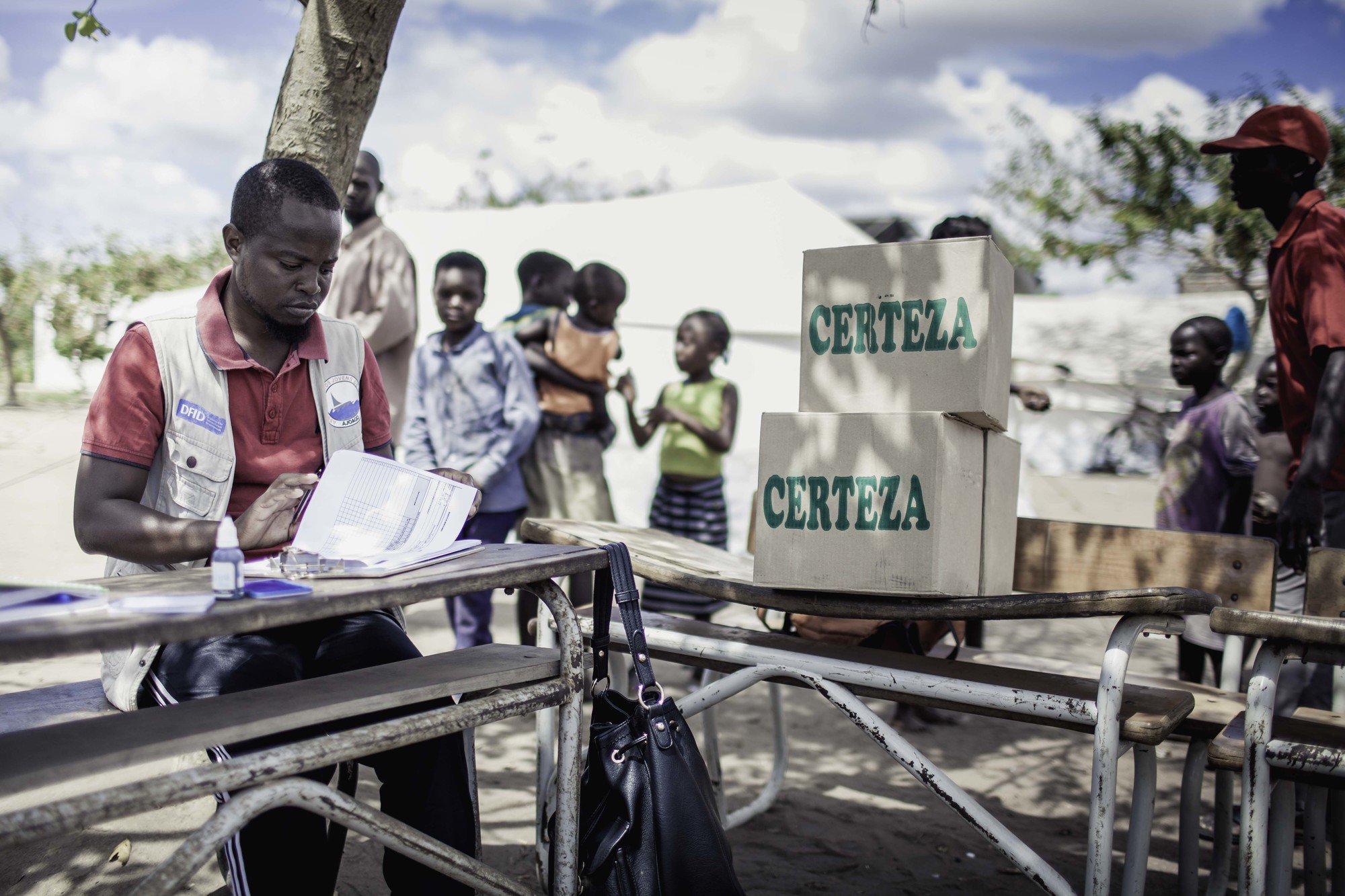Oxfam and partners are delivering cholera prevention measures in newly accessible areas in Mozambique
As flood waters begin to flow back into the Indian Ocean, Oxfam and our partner AJOAGA are able to reach areas that until recently were only accessible by boat or aircraft. Many people in these areas have received little or no assistance and are vulnerable to water-borne diseases like cholera.
One of them is Madelema, a 25-year-old mother of two who tells Oxfam staff she spent three days in the water at her home in Buzi. She and her children had initially fled to higher ground when the storm hit, and returned to check on their home just as the storm surge submerged that area, trapping them. “We had to climb on the roof. I had each child in my arms, trying to save them.” She says they spent three days there without any food until they were rescued by neighbors with a boat, and eventually made it to Guaru-Guaru, where many survivors from Buzi district were seeking shelter and aid.
Oxfam’s partner AJOAGA immediately began helping people in Guaru-Guaru, distributing 2,300 hygiene kits to families there. One member of AJOAGA staff in Buzi is Nelson Memba, who has been living in a tent there since the storm hit so he could assess needs and respond to the threat of cholera. As soon as other Oxfam and AJOAGA staff could reach Guaru-Guaru with assistance, they began measures to prevent cholera. In addition to hygiene kits, which include soap to help people keep clean and reduce disease transmission, Oxfam and AJOAGA have been distributing chemicals survivors can use to purify water.

Averting 2nd crisis
Since Cyclone Idai hit the coast of Mozambique and inland areas of Zimbabwe and Malawi on March 14, more than 800 people have died and nearly two million have been affected by the storm.
Oxfam and our partners have been providing clean water, hygiene items, and water purification chemicals to avert the outbreak of disease in affected areas-a potential second disaster following the storm. The UN is reporting that there have been more than 4,700 cases of cholera in and near the city of Beira on the Mozambique coast. Oxfam and AJOAGA are prioritizing water, sanitation, and hygiene assistance (along with education on how survivors can prevent and treat water-borne disease) as a means to reduce the transmission of cholera.
Oxfam plans to assist half a million people in Mozambique, Zimbabwe, and Malawi in the coming months.

